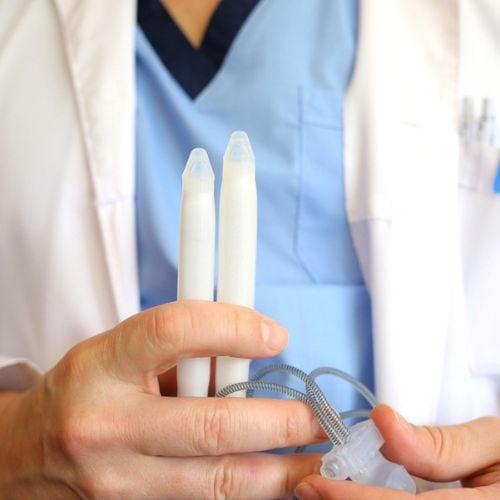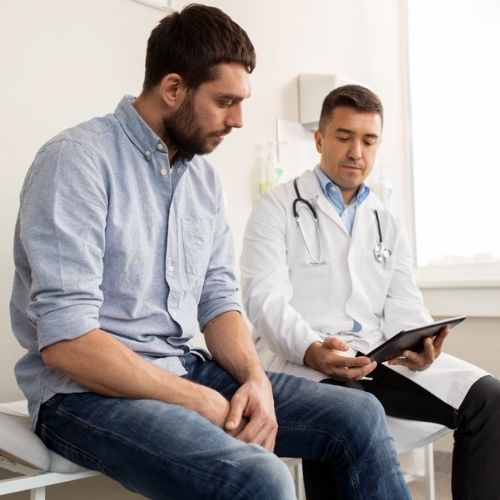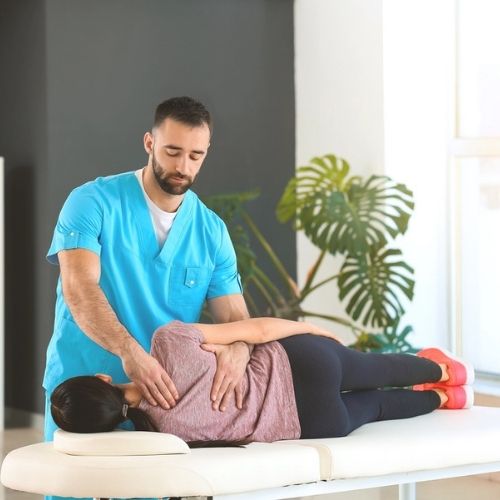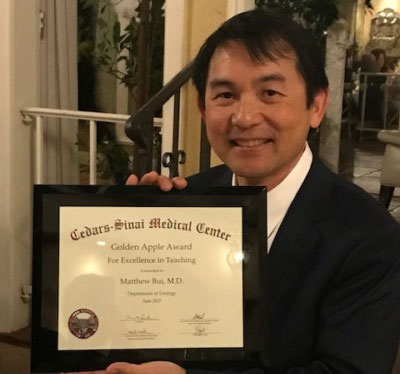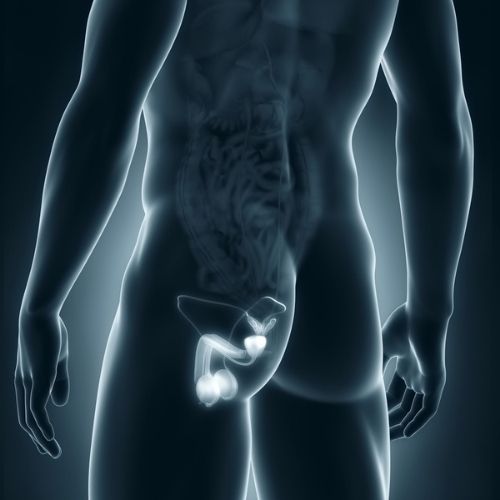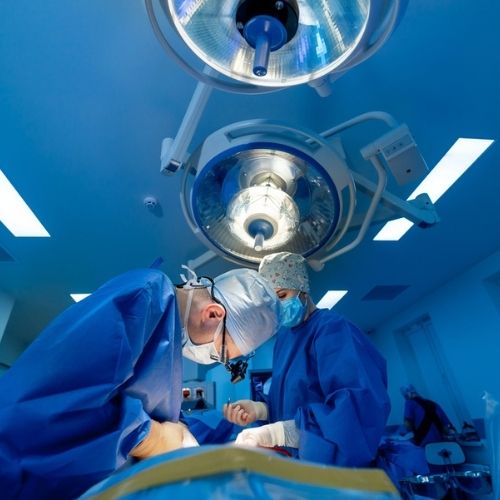What is Low Libido in Women?
While it is expected to experience fluctuations in your level of desire, if you have a persistent low sexual desire that bothers you, then you may have what is known as Hypoactive Sexual Desire Disorder (HSDD), also known as low libido. HSDD (or low libido) is a common condition where a woman experiences a persistent lack of interest in sexual activity.
Low libido, or decreased sexual desire, is a sexual dysfunction that affects women of every age. For example, many women don’t have the desire for sexual intimacy like they used to. Low libido also describes women who have never really had such a desire.
Studies show that up to 50 percent of women may experience sexual problems at some point. This becomes more common as women age, especially during and after menopause, as a result of falling levels of sex hormones.

How do we diagnose hypoactive sexual desire disorder?
To diagnose hypoactive sexual desire disorder (HSDD), our healthcare professionals follow a comprehensive evaluation process that includes multiple components:
- Medical assessments (such as a pelvic exam)
- Screening tools
- Differential diagnosis
- Relationship problems
- Substance use
- Hormonal imbalances
- Psychological assessment
What causes low libido in women?
There are many causes of low libido in women. Often, loss of libido is a combination of the following common causes:
Hormonal changes
The decline of estrogen levels during menopause impacts libido in several ways. Most obviously, it causes vaginal dryness, which can lead to painful sex, thereby reducing the desire to have sex.
There are also estrogen receptors in the brain that modulate sex drive. This drive is negatively impacted when estrogen levels decrease.
Testosterone is a big libido driver. Everyone thinks of men and the male sex drive when they think of testosterone, but women have more testosterone in their bodies than estrogen. So, testosterone levels play a huge role in female interest. In post-menopausal women, testosterone naturally decreases, leading to low desire. Levels of testosterone start decreasing even before the levels of estrogen. Functional testosterone deficiency can impact premenopausal women as well.
If you are taking medications like oral contraceptives, Spironolactone, or Finasteride, this can lower the activity of testosterone in your body.
Your hormone levels can also be impacted by pregnancy, breastfeeding, or the postpartum period.
Chronic pain or fatigue
If you are in pain or tired all the time, this understandably decreases your sexual interest.
Health conditions
Medical conditions like diabetes, thyroid disorders, cardiovascular disease, high blood pressure, pelvic floor issues, or arthritis may contribute to having a low libido.
Medications
Antidepressants (including SSRIs), anti-anxiety medications, oral contraceptives/birth control pills, antihypertensive medications, and others can affect your hormone levels and mood. One thing to note is that low libido can be a side effect of many antidepressants.
Substance use
Alcohol, tobacco, and marijuana are typically thought to impact desire negatively in the long term, though this is debatable.
Psychological factors
Mental health issues, including stress, anxiety, and depression, can negatively affect your overall well-being and also cause low libido. No one wants to have sex when they’re sad or stressed. Issues with self-esteem or body image can undoubtedly contribute to not wanting to be intimate and vulnerable. Having a history of sexual trauma or abuse will also very understandably impact your desire to have sex.
Relationship problems
Conflict within your relationship or a lack of emotional intimacy can make being physically intimate very difficult. If your communication with your partner isn’t excellent or there are trust issues, this can negatively impact your sex life and desire to have sex. Monotony or dissatisfaction in a relationship can also be a big mood killer.
Lifestyle factors
Diet, sleep, and exercise are key factors in minimizing arousal disorders. If these aren’t optimized, then chances are your sex life isn’t optimized either.
How is low libido in women treated?
Treatment options depend on the underlying cause(s) and can involve a combination of approaches.
If there’s a hormonal deficiency, we will consider hormone therapy, such as estrogen therapy or testosterone replacement.
How is low libido in women treated?
Treatment options depend on the underlying cause(s) and can involve a combination of approaches.
If there’s a hormonal deficiency, we will consider hormone therapy, such as estrogen therapy or testosterone replacement.
Are there medications for low libido in women?
Yes! If hormone therapy isn’t right for you, don’t lose hope. Several medications act independently of hormone pathways to help you get in the mood again.
Ask your Tower Urology doctor about Flibanserin (Addyi) or Bremelanotide (Vyleesi), two FDA-approved medications for low libido in women. If these don’t do the trick, the experts at Tower Urology have other tools in their toolbox and will keep trying different options until they find something that works for you and your sexual health.

Are there natural supplements for low libido in women?
In some cases, alternative therapies such as acupuncture, mindfulness, or herbal supplements may be worth exploring, although the evidence for these varies.
Fortunately, there are sexperts at Tower Urology who know which supplements are safe and have reliable data to support them.
Lifestyle changes, such as regular exercise, a balanced diet, and effective stress management, can be beneficial. Therapy, such as cognitive-behavioral therapy (CBT) or sex therapy with a sex therapist, can help address psychological or relationship issues.
If low libido is causing you distress or affecting your relationship, it’s essential to seek help. Open communication with your partner and doctor is key to finding the right solution. Remember, this is a common issue, and there are many ways we can work together to help you feel better. A healthy sex life is an integral part of women’s health.
Why trust Tower Urology for your women’s sexual health needs?
Tower Urology’s board-certified urological team is a leader in effectively treating women’s sexual health, with specialists trained in all aspects.
Tower Urology’s advantage lies in our unwavering commitment to providing world-class urologic care through advanced technology, personalized treatment plans, and a patient-centered approach. With a reputation for excellence and innovation, we deliver superior outcomes that distinguish us as leaders in urologic health.
Tower Urology is a proud affiliate of Cedars-Sinai Medical Center, ranked #1 in California and #2 nationwide by U.S. News & World Report. This partnership reflects our dedication to delivering the highest standard of urologic care alongside the best urologists in Los Angeles. Our years of experience and access to Cedars-Sinai’s world-class facilities ensure that our exceptional and innovative urological care positions Tower Urology as a leader in Southern California. We invite you to establish care with Tower Urology. Please make an appointment online or call us at (310) 854-9898.
Tower Urology is conveniently located for patients throughout Southern California and the Los Angeles area, including Beverly Hills, Santa Monica, West Los Angeles, West Hollywood, Culver City, Hollywood, Venice, Marina del Rey, and Downtown Los Angeles. Our services include treatment for anorgasmia, clitoral adhesions, clitoral pain, and low libido in women.
Low Libido in Women FAQs
It is causing you personal distress
A woman should seek medical help when her low libido:
• Causes personal distress or anxiety
• Affects her quality of life and self-esteem
• Interferes with daily activities or mental well-being
It is negatively effecting your relationship
Medical consultation is warranted when:
• Low sex drive strains relationships
• There’s significant partner distress
• Communication about intimacy becomes difficult
You have unexplained changes in your sexual desire
Women should see a doctor when:
• There’s an unexplained decrease in a previously regular sex drive
• The change persists for six months or longer
• No obvious health problems can be identified
It is hurting your quality of life
Medical attention is needed if experiencing:
• Reduced enjoyment in activities beyond sex
• Increased stress or anxiety about libido
• Avoidance of social situations
• Impacts on work performance or daily functioning
You are experiencing treatment resistance
Consider medical help when:
• Self-help measures haven’t improved the situation
• Lifestyle changes haven’t been effective
• There’s concern about underlying medical conditions
Remember that any level of sexual desire that causes personal concern is valid enough to warrant a discussion with a healthcare provider.
Having a low libido can affect you in many ways, including emotionally, psychologically, physically experiences. Some example are:
Emotional distress
Low libido often causes significant emotional distress, including:
• Feelings of guilt and shame about not wanting sexual activity
• Decreased self-esteem and questioning of personal attractiveness
• Anxiety and frustration about the lack of sexual desire
• Emotional distance or detachment from partners
Loss of physical interest in sex
People with low libido typically experience:
• Absence of sexual thoughts or fantasies
• Little to no interest in any sexual activity, including masturbation
• Reduced response to sexual cues or suggestions
• Decreased physical sensations during intimate encounters
A negative effect on your relationship
The condition can significantly impact relationships by causing:
• Tension and misunderstandings between partners
• Feelings of rejection or inadequacy in both partners
• Difficulty maintaining emotional intimacy
• Avoidance of sexual situations or advances from partners
Harming your mental health
Low libido can affect overall mental well-being through:
• Increased stress and anxiety about sexual performance
• Negative body image issues
• Feelings of personal inadequacy
• Reduced overall confidence and self-worth
The experience varies among individuals, but the distress and impact on relationships are common threads that affect many people with low libido.
Sources
Treatment of Hypoactive Sexual Desire Disorder in Premenopausal Women: Efficacy of Flibanserin in the VIOLET Study | The Journal of Sexual Medicine | Oxford Academic
https://academic.oup.com/jsm/article-abstract/9/4/1074/6886835
Low sex drive in women – Symptoms and causes – Mayo Clinic
https://www.mayoclinic.org/diseases-conditions/low-sex-drive-in-women/basics/definition/con-20033229
Couples’ sexual communication and dimensions of sexual function: A meta-analysis – PMC
https://pmc.ncbi.nlm.nih.gov/articles/PMC6699928/
Should we be prescribing testosterone to perimenopausal and menopausal women? A guide to prescribing testosterone for women in primary care – PMC
https://pmc.ncbi.nlm.nih.gov/articles/PMC7098532/
Sexual Health | The Menopause Society
https://menopause.org/patient-education/menopause-topics/sexual-health























































